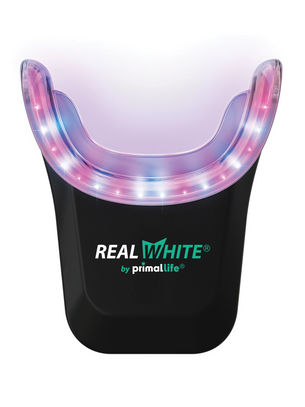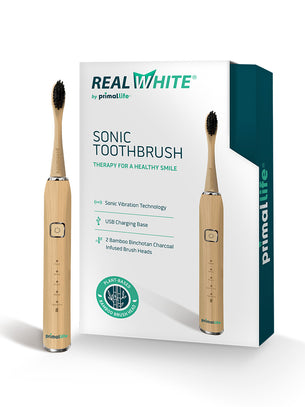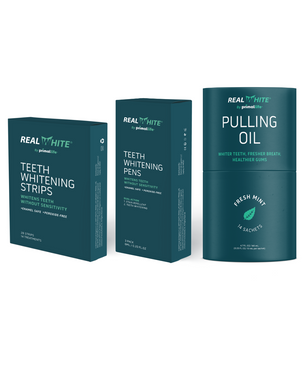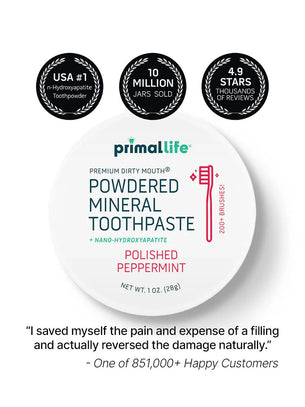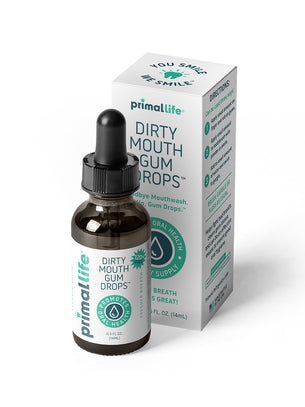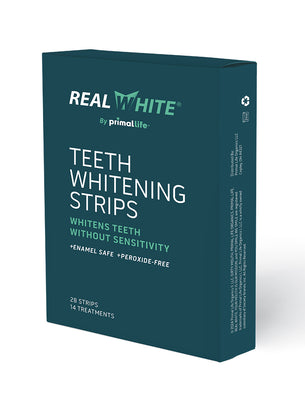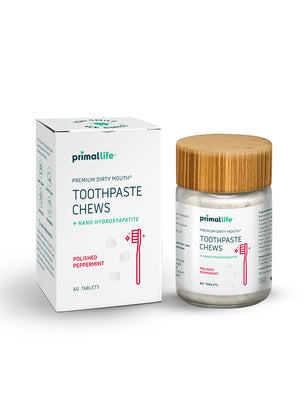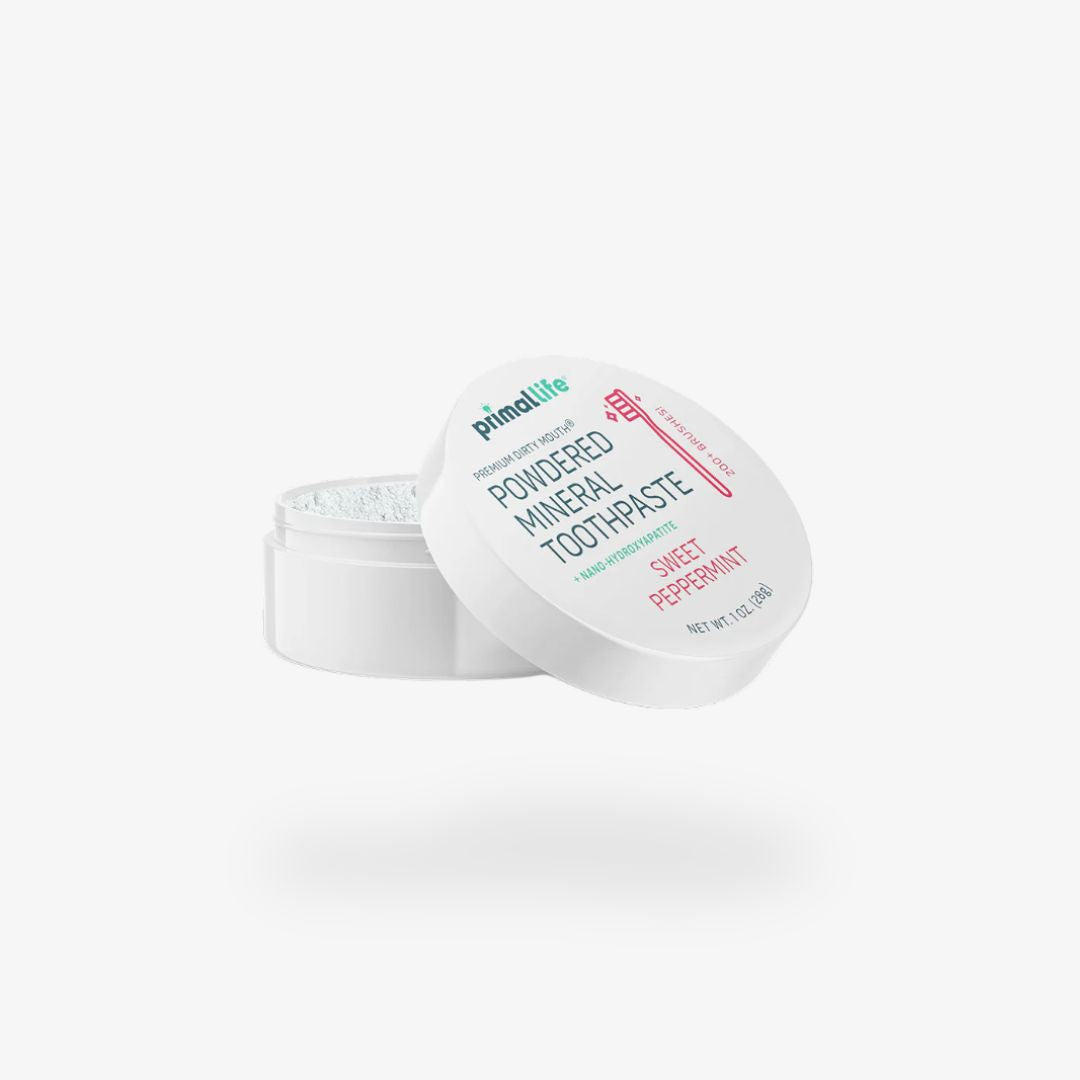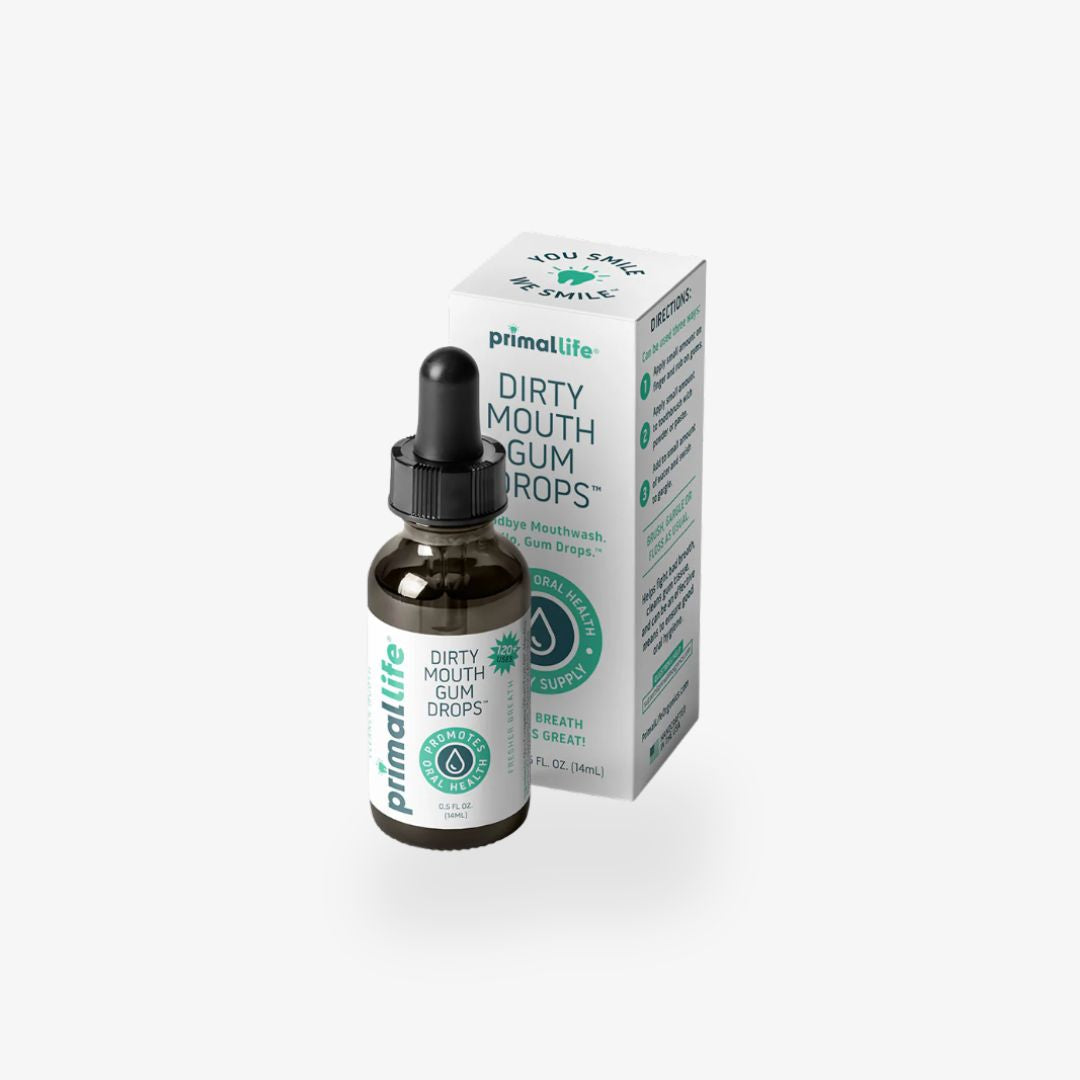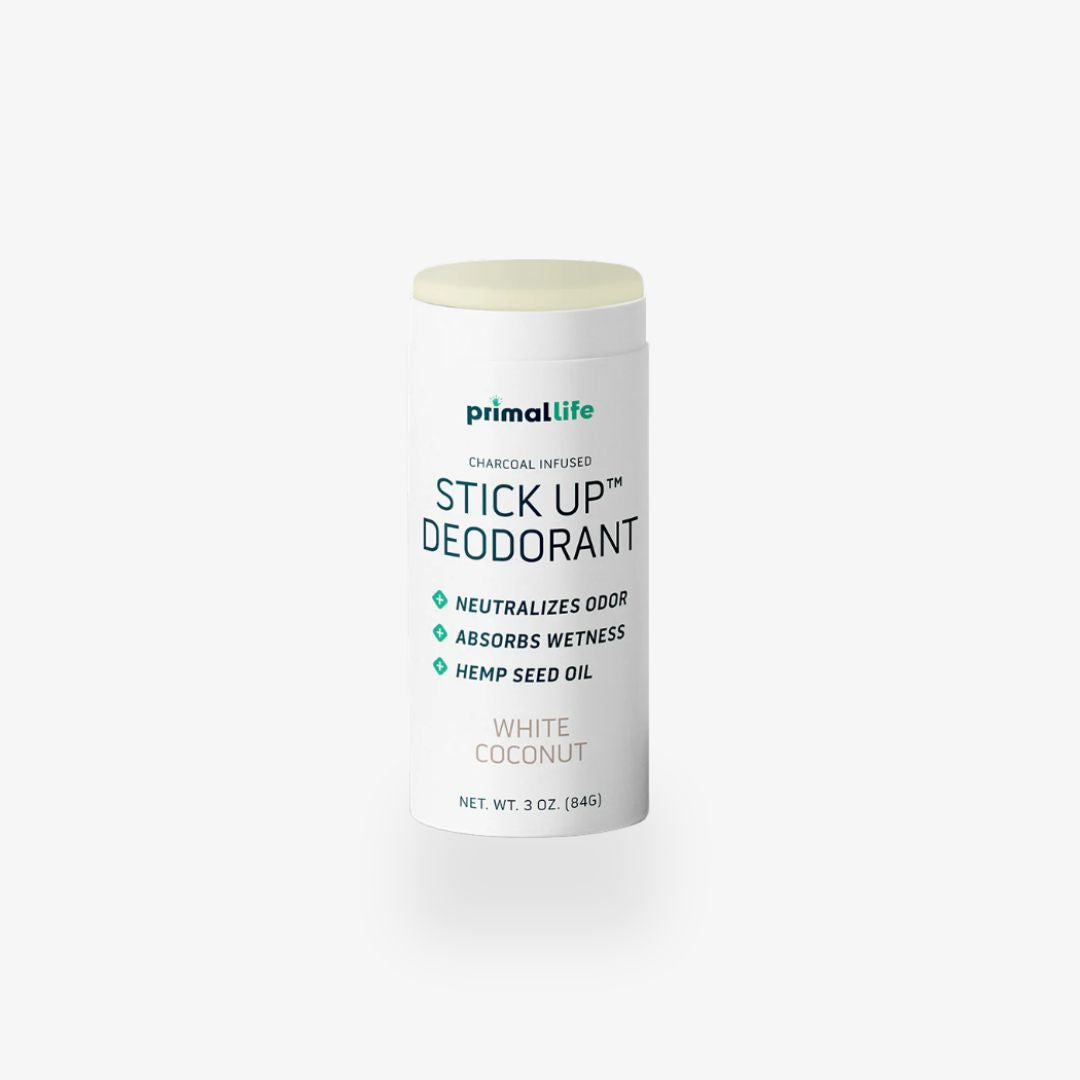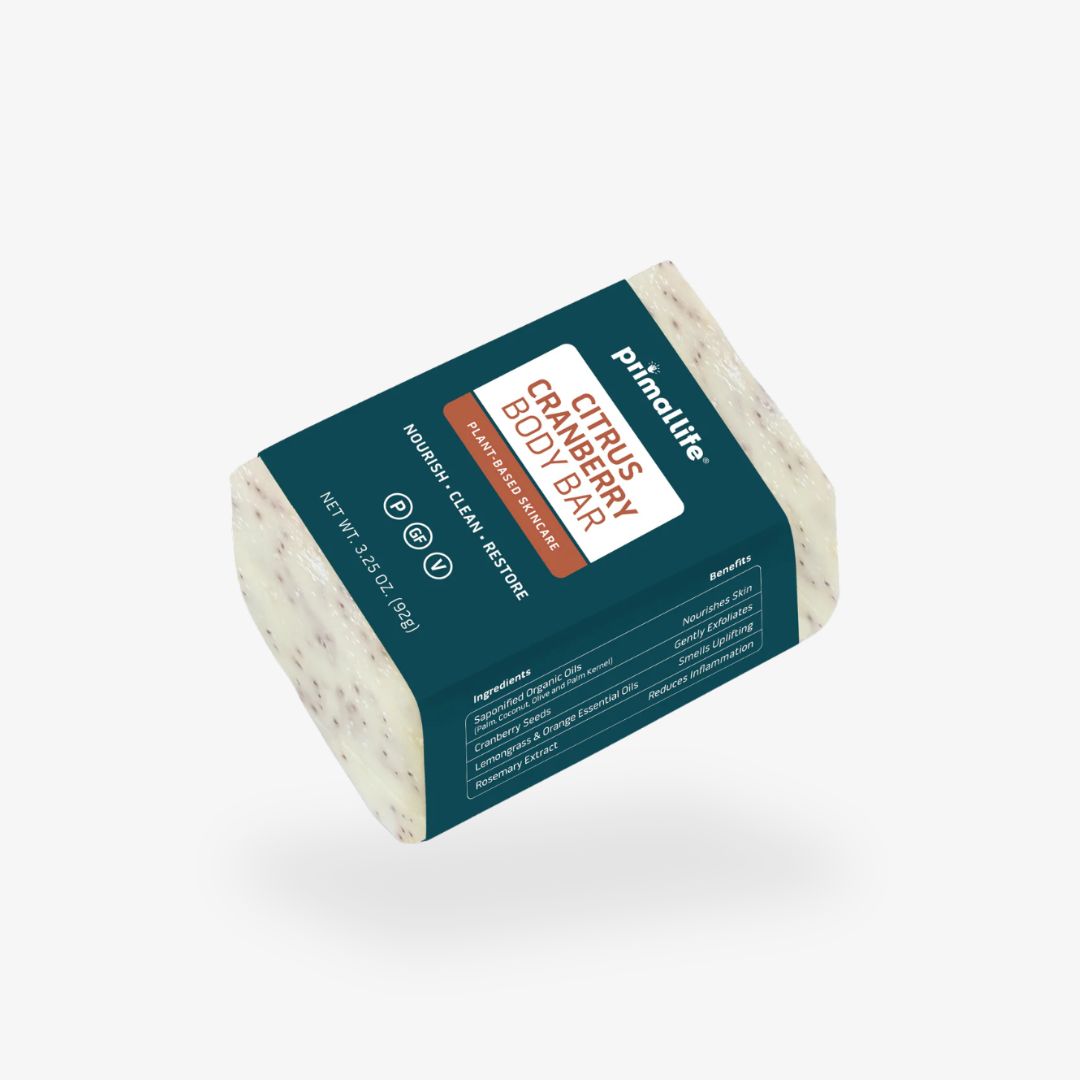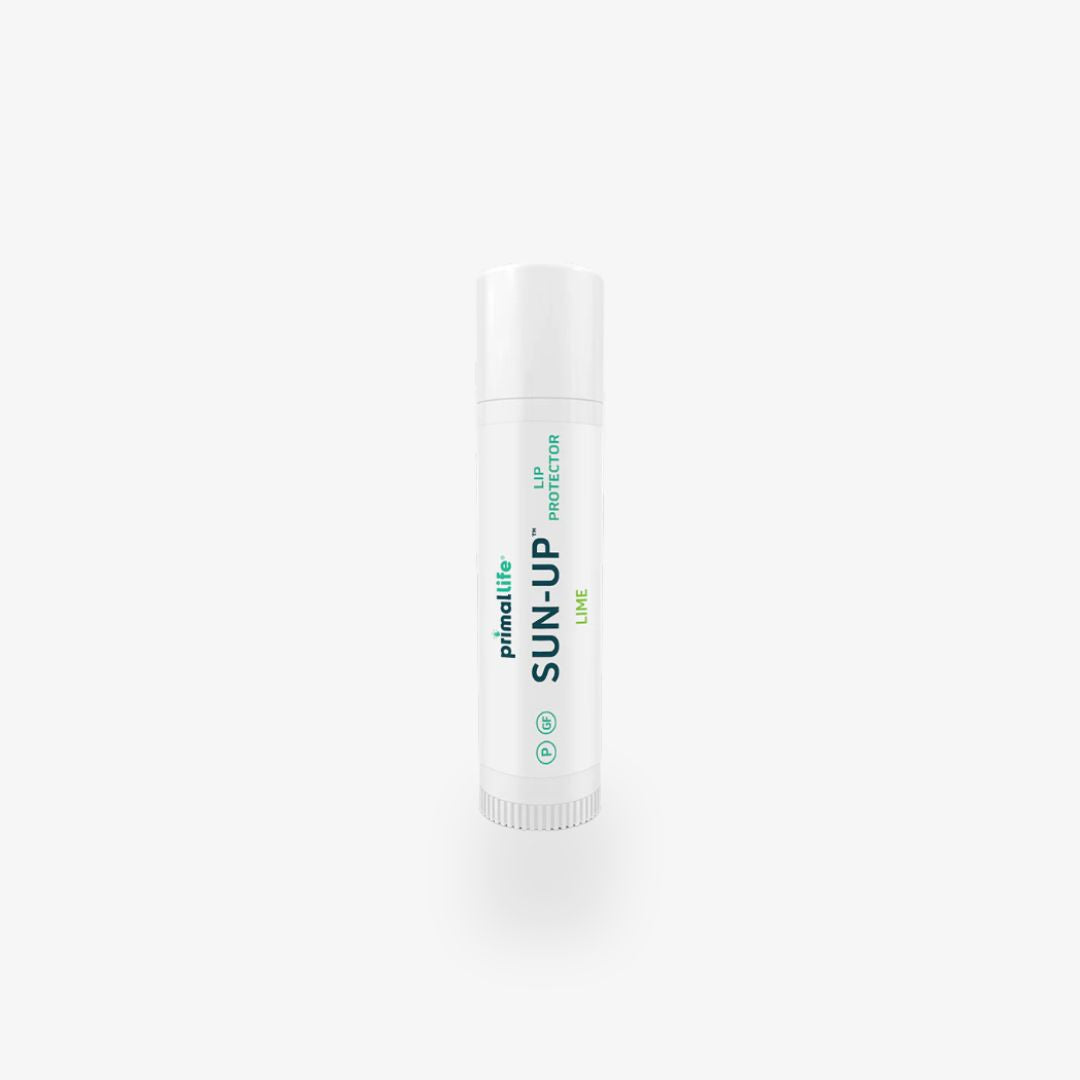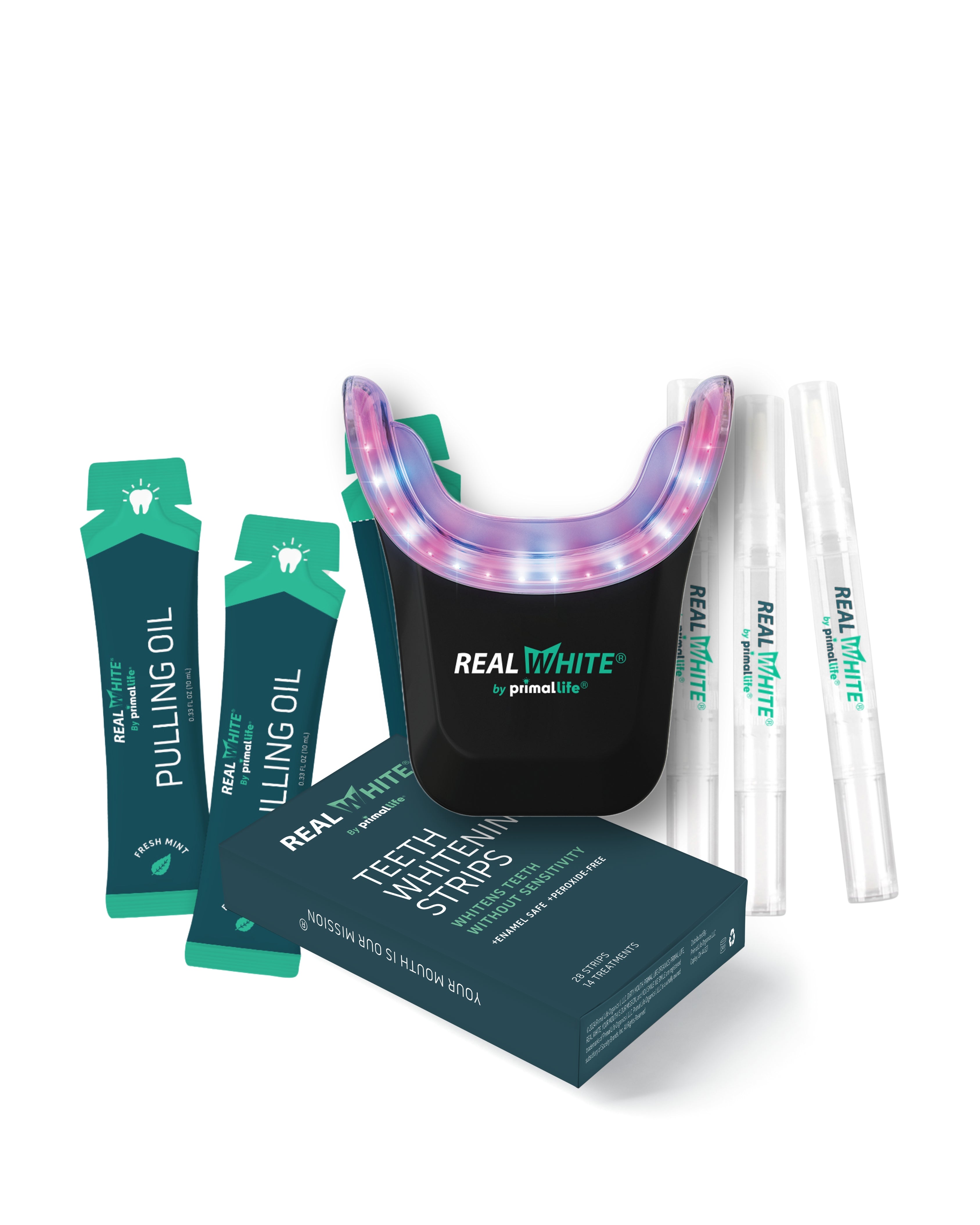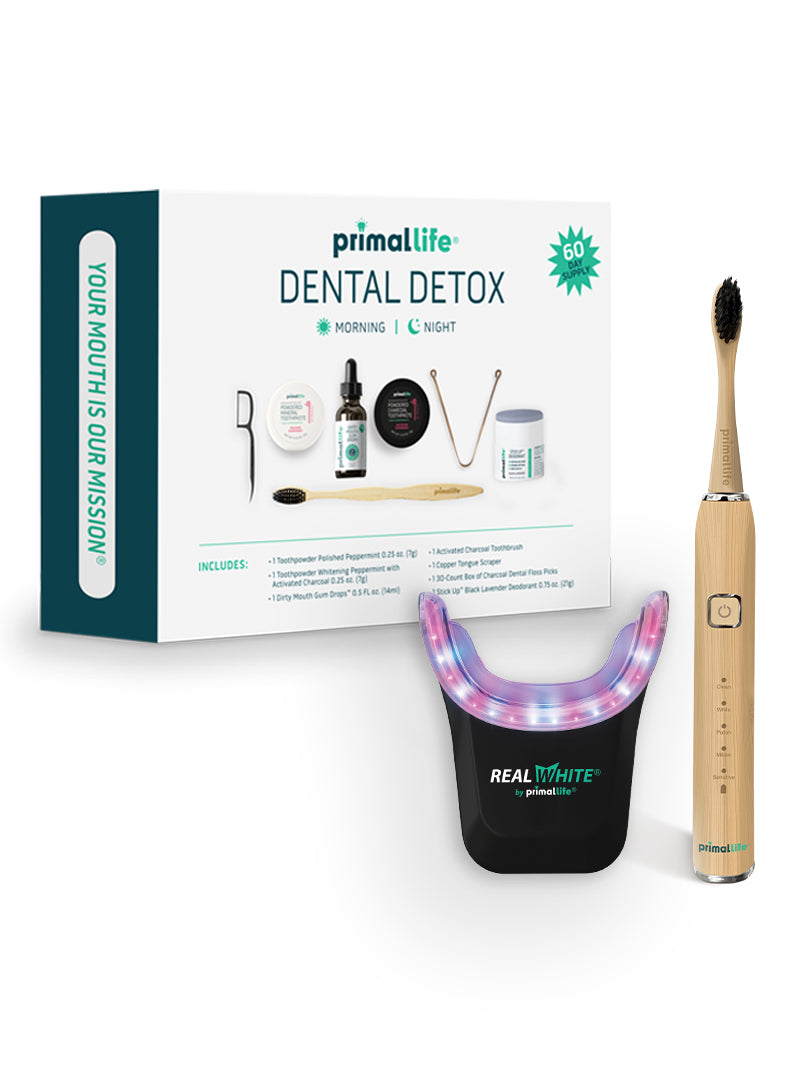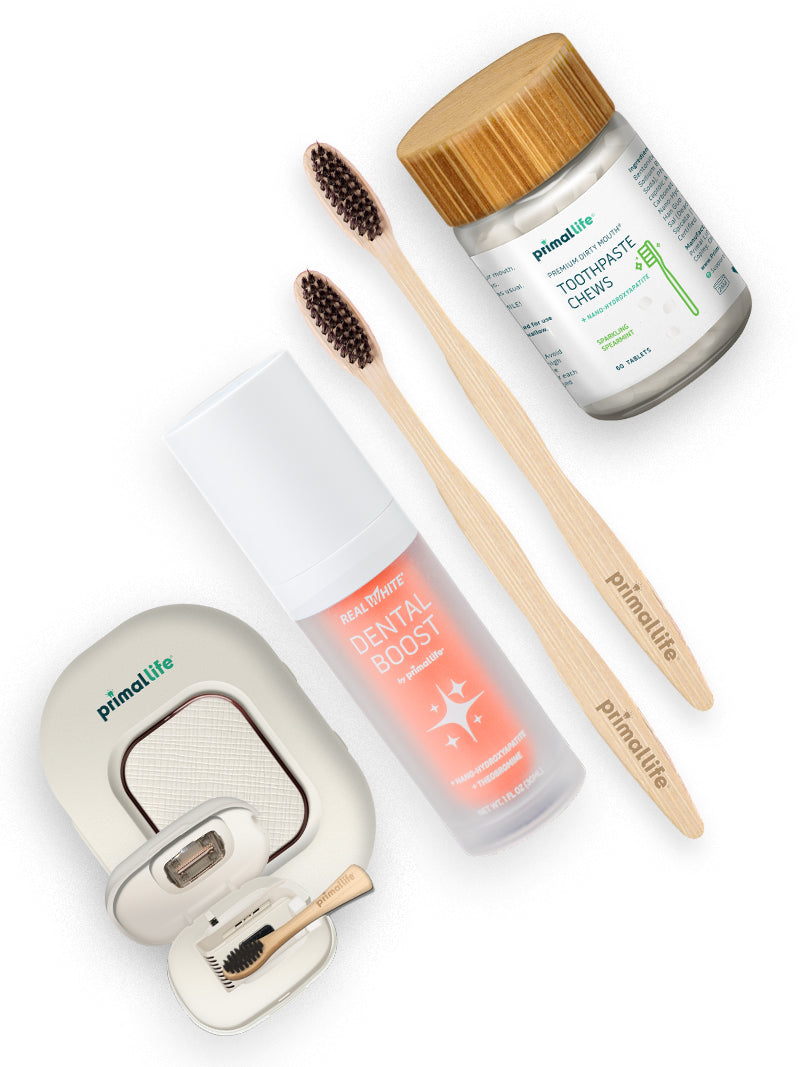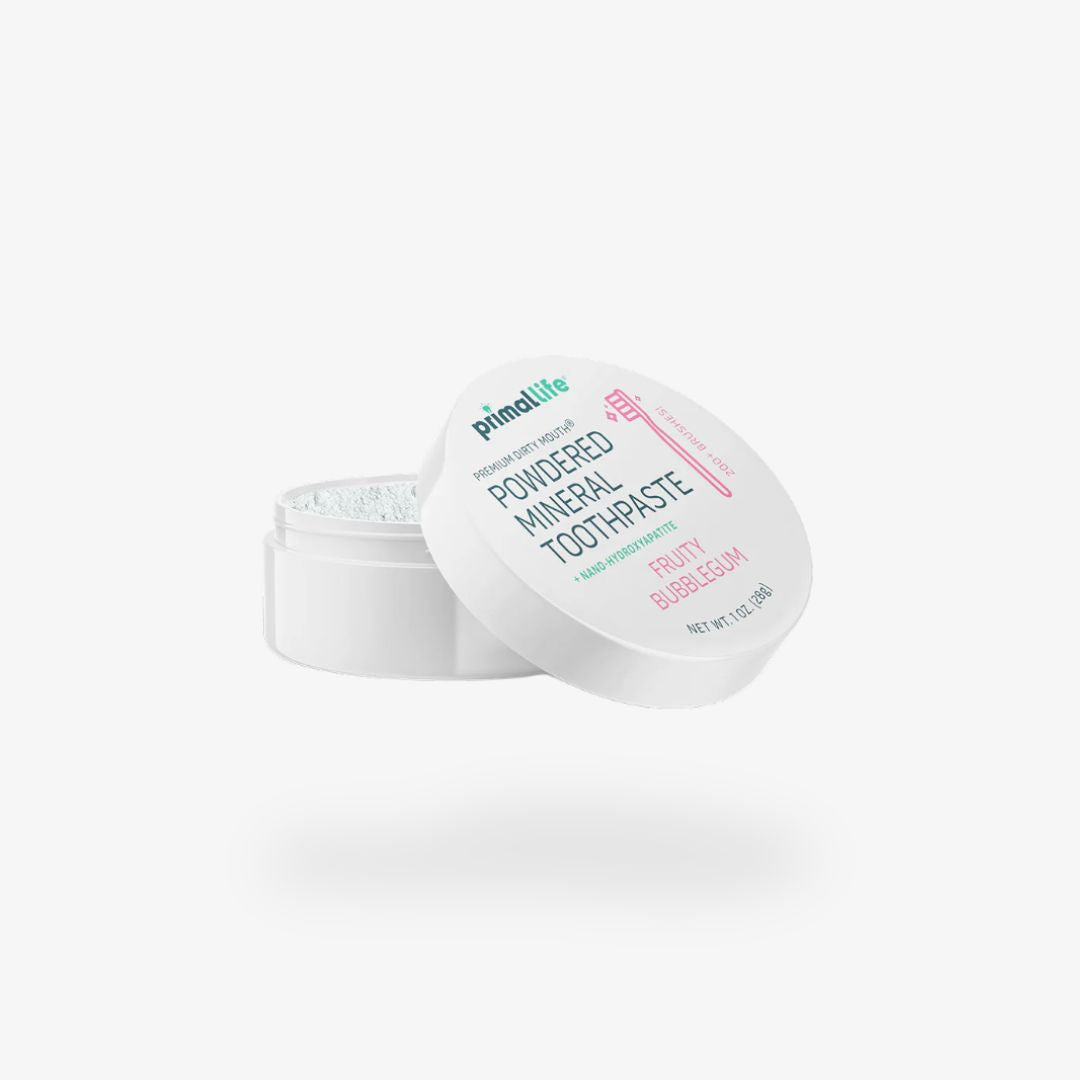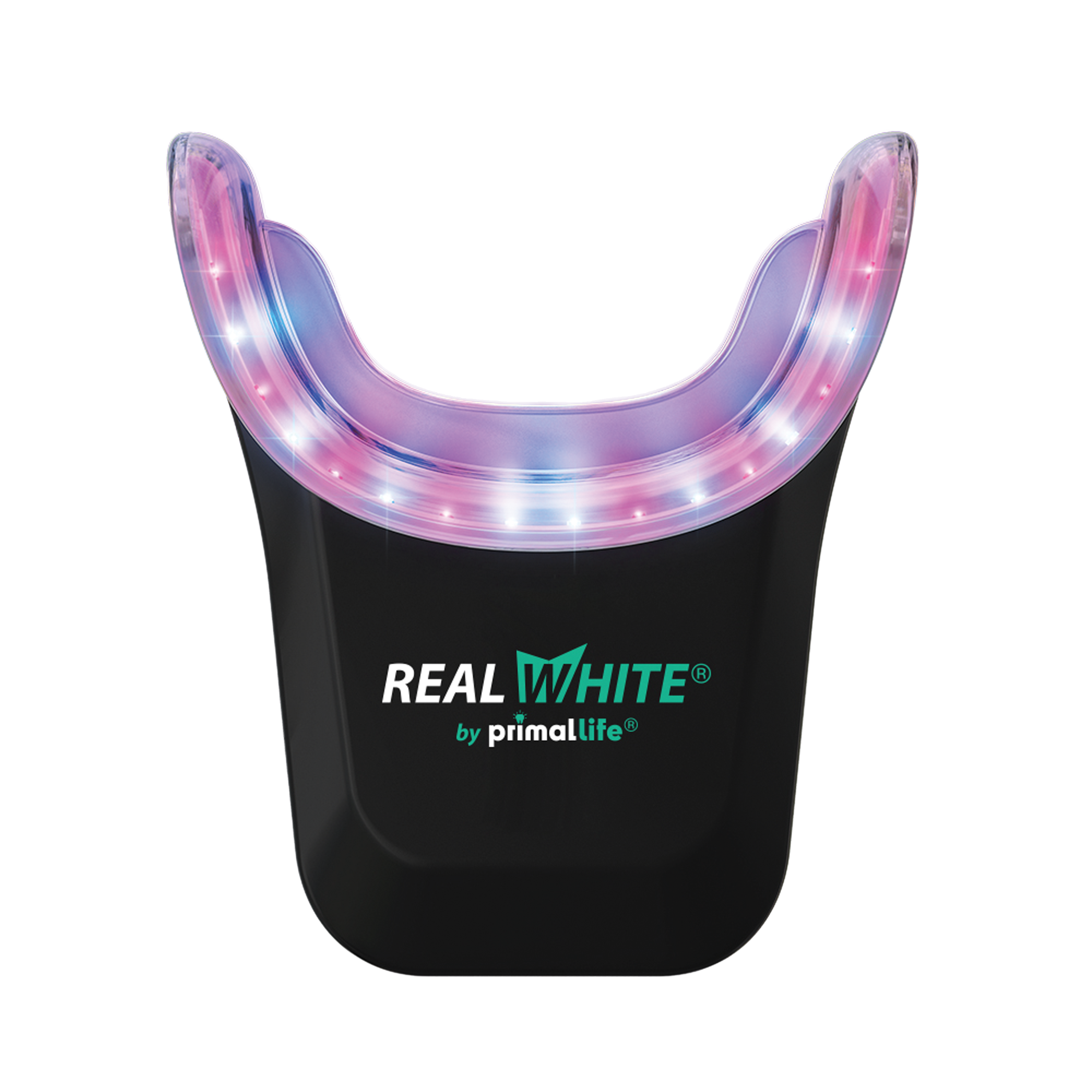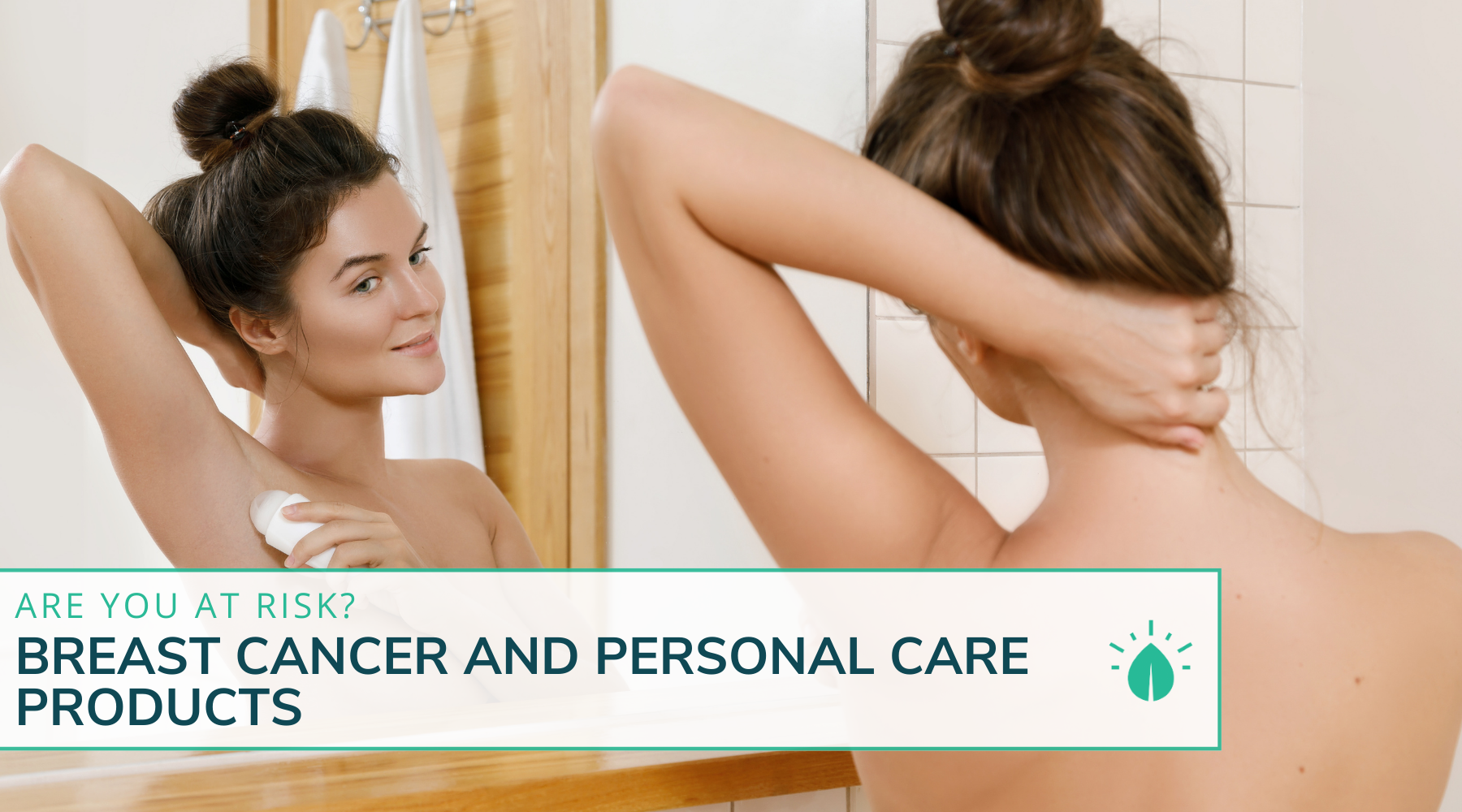Breast cancer, the leading cause of cancer death among women globally, has recently come under the spotlight for its potential links to the chemicals found in the personal care products many of us use daily.
A groundbreaking study published in Environmental Health Perspectives identified over 900 chemicals commonly found in personal care products that could be contributing to an increased risk of breast cancer. The study identified chemicals that have been either linked to mammary gland tumors or increased certain hormonal activities that may result in forming tumors, or both.
In this article, we’re going to explore how certain chemicals cause increased risk of breast cancer, identify the top 6 chemicals of concern, and explore what steps can be taken to prioritize our health.

How Chemicals Contribute to Breast Cancer
In the study conducted by the Silent Spring Institute and published in January 2024, researchers identified 921 chemicals associated with an increased risk of breast cancer.
This comprehensive investigation not only focused on chemicals known to cause tumors but also delved into those capable of inducing biological changes, providing a more nuanced understanding of the potential cancer risks associated with personal care products.
These identified chemicals were categorized as endocrine disruptors, impacting reproduction and the nervous system. Perhaps more alarmingly, 92 percent of these substances were found to have the potential to harm or alter our DNA, underscoring the daily risks we face.
To grasp the profound impact of personal care product chemicals on breast cancer risk, it's essential to explore the underlying mechanisms. Cancer is often marked by uncontrolled cell proliferation, an acceleration of the normal cell division process.
While established carcinogens typically induce tumor growth by causing harm to DNA or disrupting processes that regulate DNA repair or cell division, breast cancer stands out due to the unique role of hormones. Chemicals can contribute to cancer through various mechanisms, with the formation of tumors being a common outcome.
In this groundbreaking study, experts in toxicology, cancer, and public health expanded on a list of over 200 chemicals previously identified as potential contributors to breast cancer.
The team conducted cell culture studies to identify chemicals that boost estrogen or progesterone levels, activate the estrogen receptor, or damage DNA, all contributing to an increased risk of breast cancer.
The groundbreaking aspect of this study lay in its holistic approach, considering multiple ways chemicals could exert harmful effects. This comprehensive strategy enhanced our understanding of the potential risks associated with these chemicals.
This study sheds light on the pervasive risks posed by everyday chemicals present in personal care products. With 92 percent of the identified substances having the potential to alter DNA and potentially contribute to breast cancer, the findings underscore the urgent need for regulatory measures to protect individuals from the daily hazards they unknowingly encounter.
Due to the pressing concerns and well-documented risks surrounding cancer-causing chemicals in personal care products, we cannot wait for regulatory measures.
At Primal Life Organics, we are committed to empowering individuals with information and guidance on identifying and avoiding these harmful substances. We believe in taking proactive steps to protect your health and well-being, and we're dedicated to supporting you in making informed choices for a safer, healthier lifestyle.
Top 6 Chemicals of Concern
In light of the recent groundbreaking research conducted by the Silent Spring Institute, the identification of 921 chemicals linked to breast cancer is undeniably concerning. However, in our efforts to provide the most effective assistance, we are shifting our focus to the top 6 chemicals of concern.
While the extensive list of chemicals warrants attention, we chose to prioritize these five due to their widespread presence in personal care products. This targeted approach allows us to address the most pressing concerns, offering a clearer insight into the immediate risks associated with commonly used chemicals in our everyday routines.
Please understand that these chemicals cause inflammation inside the body. Inflammation is the root cause of disease including cancer. Studies show that chronic inflammation may lead to a higher risk of breast cancer coming back (called recurrence)- so avoiding these chemicals is imperative for prevention- especially for breast cancer survivors.
1 - Phthalates
Phthalates are ubiquitous in cosmetics, personal care products, and even household items, often concealed under the term "fragrance." These endocrine disruptors have been linked to mammary gland tumors and other adverse health effects.
Research suggests that exposure to phthalates may interfere with hormone levels, potentially increasing the risk of breast cancer development. To mitigate exposure, consumers should scrutinize product labels and opt for phthalate-free alternatives whenever possible.
2 - Parabens
Parabens, commonly used as preservatives in cosmetics and personal care products, play a significant role in extending product shelf life. However, research has raised concerns about their potential health risks, particularly when considering breast cancer or its links to the disease.
These synthetic compounds mimic estrogen in the body, leading to hormone disruption and potential adverse effects on breast tissue. Studies have indicated a correlation between paraben exposure and breast cancer development, highlighting the importance of scrutinizing product labels for these ingredients.
Furthermore, parabens have been detected in breast cancer tissue samples, suggesting a possible link between their use and the proliferation of cancerous cells.
3 - Formaldehyde
Formaldehyde, a known carcinogen, is commonly found in various personal care products, particularly those used for hair straightening treatments, nail enhancements, and as a preservative in cosmetics.
Studies have consistently linked formaldehyde exposure to increased cancer risks, including breast cancer, underscoring the importance of minimizing contact with this harmful chemical.
In addition to its carcinogenic properties, formaldehyde can also irritate the skin, eyes, and respiratory system, exacerbating existing health conditions and compromising overall well-being.
4 - Bisphenols, Including BPA
Bisphenols, such as BPA (bisphenol A), are prevalent in plastics, epoxy resins, and thermal paper, posing a substantial threat as endocrine disruptors. This means if your skincare is housed in a plastic bottle, you could be exposed to BPA.
Despite efforts to phase out BPA, its substitutes may harbor similar health risks, emphasizing the need for vigilant avoidance of bisphenol-containing products. Research suggests that exposure to bisphenols may interfere with hormone function and increase the likelihood of breast cancer development.
Adopting BPA-free alternatives and advocating for more stringent regulations can help minimize exposure to these harmful chemicals.
5 - Chlorotriazine Herbicides, Such as Atrazine
Chlorotriazine herbicides, including atrazine, are commonly used in agriculture and landscaping but may also find their way into personal care products.
Studies have linked exposure to atrazine with an elevated risk of mammary gland tumors in animal models, raising concerns about its potential carcinogenic effects in humans. Heightened scrutiny and comprehensive testing protocols are necessary to assess the safety of chlorotriazine herbicides and mitigate potential health hazards.
6 - Chemicals Hidden Behind "Fragrance"
The generic term "fragrance" on product labels often serves as a catch-all for a complex blend of chemicals, many of which may pose health risks. In fact, the International Fragrance Association (IFRA) provides a list of more than 3,000 chemicals regularly included in fragrance formulas. These chemicals, often concealed under the term "fragrance," are not subject to FDA regulation due to trade secret protections.
Many of these chemicals have been linked to various health concerns, including allergies, respiratory distress, and hormone disruption.
Opting for fragrance-free or naturally scented alternatives can help minimize exposure to potentially harmful chemicals and reduce the risk of adverse health effects.
Legal Approval Doesn't Equate to Safety
The Silent Springs study emphasizes a crucial point: just because a chemical is legally approved for use doesn't guarantee its safety.
Shockingly, almost none of the 921 identified chemicals were subjected to safety testing before being introduced to the market. Among these are substances like phthalates, solvents such as trichloroethylene, bisphenols, and chlorotriazine herbicides, highlighting a systemic failure in adequately safeguarding human health.
In fact, it is disturbing to say the least that in the Toxic Substances Control Act (TSCA), chemicals used in pesticides, tobacco, food, food additives, drugs, and cosmetics are exempt from regulation.
Comparing regulations between the United States and the European Union further underscores this issue. While the EU has banned or restricted over 1,400 chemicals from use in personal care products, the US has only prohibited or limited around 30. This stark contrast raises serious concerns about the potential risks posed by chemicals present in everyday products on the American market.
The consequences of lax regulation extend beyond theoretical risks. In the EU, where stricter regulations are enforced, there has been a significant reduction in the incidence of illnesses and adverse reactions associated with personal care product exposure. Conversely, in the US, where regulatory oversight is less stringent, reports of health issues, lawsuits, and consumer complaints related to personal care product usage continue to surface at alarming rates.
These disparities highlight the urgent need for comprehensive regulatory reform in the United States to better protect public health. In the absence of robust safety evaluations and stringent regulations, consumers are left vulnerable to potential harm from untested and potentially hazardous chemicals lurking in the products they use daily.
What Can You Do?
In light of the alarming findings regarding the potential risks posed by certain chemicals in personal care products, it's clear that waiting for regulatory measures to be implemented is not sufficient to protect public health. How many women must be affected by breast cancer before the government takes decisive action to address these dangers?
It's time for individuals to take matters into their own hands and become conscious consumers. This means being proactive in understanding product labels, seeking out brands that prioritize transparency, and supporting initiatives for stricter regulations in the personal care product industry.
By arming ourselves with knowledge and making informed choices, we can advocate for safer alternatives and work towards a future where health is paramount.
Here are a few things you can do to keep yourself safe:
Read Labels
Be vigilant about reading product labels. Avoid products containing chemicals you cannot pronounce such as phthalates, parabens, formaldehyde, bisphenols, and undisclosed fragrance chemicals.

Remember, beauty products aren’t regulated by the FDA, so you have to be your own beauty police.
Understanding how ingredients are listed on labels is essential. The FDA requires cosmetic brands to list ingredients in descending order of predominance. The Rule of 5 is a helpful guideline: the first five ingredients listed typically make up 75% to 90% of the product. If the first five ingredients are synthetic or unrecognizable, it's best to steer clear. Instead, opt for products where the first five ingredients are organic essential oils, herbs, extracts, or other plant-based oils.
Additionally, consider the 1% Rule: ingredients that fall below 1% of the total formulation do not need to be listed in any order. Cosmetic companies often strategically place appealing-sounding ingredients higher on the list to distract from potentially harmful ones at the bottom. By understanding these labeling practices, you can confidently select products that prioritize your health and well-being.
Avoid Products That Contain Water
Most products use standard tap water instead of filtered water. When the water evaporates, it leaves behind high concentrations of toxins and heavy metals on your skin.
Although you may not be able to see the toxins and heavy metals accumulated on your face, you’re sure to notice their side effects like wrinkles, dullness, acne, and discoloration.
Tap water contains endocrine disruptors and a long list of other toxins you would never voluntarily allow on or near your body:
- Disease-causing bacteria
- Heavy metals
- Gasoline solvents
- Synthetic chemicals
- Industrial waste products
- Disinfectant byproducts
- Radioactive substances
Look For Organic Ingredients
Unfortunately, it’s not enough to find a product that uses plant-based ingredients. If the plant-based ingredients are sourced from conventionally grown plants, you’re automatically exposing yourself to herbicides, pesticides, and other toxins associated with non-organic farming (including chlorotriazine herbicides, such as atrazine as mentioned above as one of the top six cancer causing ingredients in personal care products.)
Select products that use ingredients sourced from plants labeled as at least 95% organic or wildcrafted.
By definition, organic farming represents a collection of practices that rely on natural processes and materials instead of chemicals. The goal of organic agriculture, according to the USDA, is to “support the cycle of on-farm resources, promote ecological balance, and conserve biodiversity.”
Keep in mind that, considering the Rule of 5 and The 1% Rule, it’s not enough to list a few Certified Organic ingredients at the bottom of a skincare label. Unless Certified Organic ingredients are listed first, you’re still exposing your skin to a laundry list of harmful toxins.
Avoid Products With “Fragrance”
If “fragrance” is listed on a product label, it’s a warning sign.
As the FDA explains, companies are not required to disclose the ingredients used to create fragrances or flavors since they’re considered “trade secrets”. This makes it impossible to know exactly which chemicals and toxins are loaded into your skincare products.
This is especially concerning when you consider that the International Fragrance Association (IFRA), the international organization tasked with promoting the safe use of fragrances, does not ban some of the most controversial fragrance ingredients. The IFRA standards don't implement restrictions on known carcinogens, phthalates, or synthetic musks, all of which pose threats to human health.
The IFRA does, however, provide a list of more than 3,000 chemicals that are regularly included in the formulas manufacturers call "Fragrance." Many of these chemicals are also listed as chemicals of concern on important publications like California Proposition 65, the European Union Endocrine Disruptors Priority List, and the National Toxicology Program 13th Report on Carcinogens.
Even skincare products that claim to be “fragrance-free” aren't always safe. They often purposefully include fragrance ingredients to mask the intense odor of other chemical compounds and appear unscented. Only a close investigation of the ingredients label will tell you the truth.
Although it’s impossible to know exactly how harmless or dangerous a specific product’s “fragrance” ingredients are, we do know the reported common side effects, including respiratory distress, allergies, and hormone disruption.
Avoid Plastic Packaging
As we stated above, research suggests that exposure to bisphenols (BPA) may interfere with hormone function and increase the likelihood of breast cancer development.
BPA is banned in formulations, but is considered safe for packaging.
The use of BPA was banned as an ingredient in cosmetic formulations back in 2006, but it is used as a coating material in a number of packaging materials, including plastic bottles and aerosols, to prevent corrosion.
Cosmetic manufacturers and representative bodies argue that the use of Bisphenol A is essential to prevent the degradation of packaging to ensure the quality of the formulation but we disagree.
It has also been stated that compulsory safety assessments on the chemical have found that its inclusion in cosmetics packaging leads only to trace migrations of the substance and do not represent any risk to human health- again, we disagree.
This means when you see personal care products packaged in plastic, you should avoid them.
This is because every temperature change and resulting contraction or expansion gives toxins and chemicals the opportunity to leach from the plastic into your skincare formula. Worse yet, the list of toxins and chemicals lurking in plastic packaging includes thousands of compounds that may pose potential dangers to human and environmental health.
Instead, look for personal care products packaged in cardboard, glass, or tin.
Support Regulation
Advocate for stricter regulations in the personal care product industry. Support organizations working towards safer and transparent formulations.
Introducing Safe Alternatives
At Primal Life Organics, we're dedicated to your health and well-being, which is why we take great care in crafting personal care products that prioritize safety and effectiveness.
Our commitment extends beyond just providing products; we aim to empower you with the knowledge to make informed choices about your self-care routine.
When selecting personal care products, it's crucial to prioritize brands that feature organic and natural ingredients while also considering packaging choices. Organic and natural ingredients sourced from sustainable farming practices ensure that your skin receives the purest, most nourishing formulations free from harmful toxins.
Additionally, opting for products packaged in materials like glass, tin, or cardboard minimizes exposure to toxins leaching from plastic packaging, safeguarding both your health and the environment.
Let's explore some of our top products and why they matter in prioritizing your well-being:
Stick Up Deodorant:

One of the first personal care products to replace when it comes to avoiding breast cancer is your deodorant. Commercial deodorants, laden with toxic chemicals like aluminum, raise concerns about potential health risks, especially breast cancer.
Stick Up Deodorant is a game-changing solution designed to keep you fresh without compromising your health. Our aluminum-free formula eliminates odor-causing bacteria and toxins, providing comprehensive odor control while promoting your overall well-being.
By harnessing the detoxifying power of natural clays like bentonite and kaolin, Stick Up Deodorant eliminates unwanted substances from your armpits, ensuring that you stay fresh and confident throughout the day. Zinc oxide further enhances odor control by converting smelly fatty acids into odorless zinc salts, leaving you feeling clean and revitalized.
With our Stick Up Deodorant you say goodbye to toxic chemicals and embrace a healthier alternative that keeps you feeling fresh, confident, and ready to take on the day.
Dental Detox Kit:

When it comes to personal care products, you can’t forget to scrutinize your toothpaste. While the evidence linking fluoride to cancer isn't conclusive, there are concerns about its potential health risks, especially considering fluoride's classification as a proven neurotoxin.
Moreover, commercial toothpaste and mouthwash often contain heavy metals and toxic chemicals, which can have adverse effects on your health.
That's why we've developed our Dental Detox Kit, a comprehensive solution to detoxify your mouth and promote oral health. Our kit includes two remineralizing Toothpowders crafted with three different types of clays and nano-hydroxyapatite to cleanse and fortify your teeth and gums.
Say goodbye to toxic mouthwash with our Gum Drops, and opt for our bamboo charcoal toothbrush and copper tongue scraper for a complete detox experience. With our Dental Detox Kit, you can prioritize your oral health without compromising on safety.
Glow Face Package:
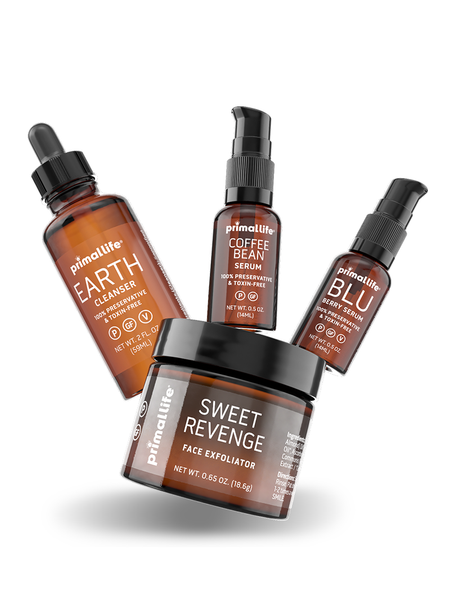
Your skincare routine plays a crucial role in maintaining healthy, radiant skin. However, many commercial skincare products are loaded with toxic chemicals that not only contribute to premature aging but have also been linked to hormone disruption, cancer, and other serious health concerns.
Additionally, the widespread use of plastic packaging further compounds environmental issues.
At Primal Life Organics, we understand the importance of clean, natural skincare that not only enhances your beauty but also supports your overall well-being. Our Glow Face Package offers a simple yet effective solution to transform your skincare routine and revitalize your complexion.
Commercial skincare products often contain harmful ingredients that can wreak havoc on your skin and overall health. From parabens and sulfates to synthetic fragrances and preservatives, these toxic chemicals can disrupt your skin's natural balance and lead to a host of issues, including irritation, inflammation, and accelerated aging.
Instead, our Glow Face Package is here to rescue your skin from the clutches of harmful chemicals. Our 3-step program is designed to restore your skin's natural radiance and vitality in just three weeks.
With our detoxing Earth Cleanser, hydrating Blu Berry and Coffee Bean Serums, and Sweet Revenge Sugar Exfoliator your skin will be clean and hydrated while stimulating cell turnover and collagen production, for a beautiful, glowing complexion.
Body Wash Bar:

Soap is a staple in our daily hygiene routines, but not all soaps are created equal. Many commercial soaps contain ingredients that may raise concerns about breast health and overall well-being. Chemicals like parabens, phthalates, triclosan, and synthetic fragrances found in some soaps have been linked to potential risks, including an increased risk of breast cancer.
At Primal Life Organics, we believe in raising the bar when it comes to soap. Our Earth-Friendly Body Wash Bar is handmade in the USA, plant-based, super-concentrated, and plastic-free. Unlike conventional soaps, ours are scented with natural oils, lather well, remove build-up, and leave your skin feeling incredibly smooth.
Our Body Wash Bar is not only effective but also gentle on your skin and the environment. Free of harmful chemicals and artificial fragrances, they're suitable for your entire family's delicate skin. Made with organic oils like saponified palm oil, coconut oil, olive oil, and palm kernel oil, our bars cleanse and remove daily dirt from the skin while leaving it clean, soft, and smooth.
Body Butter

Moisturizer is a skincare essential, but many commercial options contain hidden chemicals that can pose risks to your skin and overall health. Ingredients like parabens, phthalates, synthetic fragrances, and other harmful additives found in conventional moisturizers have been associated with adverse effects, including potential links to breast cancer.
Our Body Butter is formulated with a perfect blend of organic ingredients, including Aloe Butter, Shea Butter, Pure Filtered Beeswax, Jojoba Oil, and Extra Virgin Olive Oil. This nourishing blend soothes, heals, moisturizes, and repairs damaged skin upon contact.
Unlike chemical-laden moisturizers, our Body Butter is free of harmful additives, phthalates, and synthetic fragrances, making it safe and gentle for daily use by your entire family. Rich in vitamins, antioxidants, and nutrients, our formula helps maintain moisture in the skin, promoting soft, supple, and radiant-looking skin.
Shaving Cream

Did you know that many commercial shaving creams contain harmful parabens and phthalates? Your underarms are situated right next to your breasts, and the last thing you want to do is risk exposing them to harmful chemicals found in many commercial shaving creams.
At Primal Life Organics, we believe in a safer, more nourishing approach to shaving, especially for delicate areas like your underarms, which may be extra sensitive after chemotherapy and radiation treatments.
That's why we've created One Leg Up Shaving Cream, a solution free from these toxic chemicals. Crafted with organic shea butter, babassu, lavender, and eucalyptus oils, our formula not only ensures a pain-free shaving experience but also moisturizes and softens your skin with natural, organic ingredients. Say goodbye to irritation and hello to softer, smoother skin with each shave.
Prioritizing Health in the Fight Against Breast Cancer
Breast cancer is a formidable adversary, claiming countless lives and affecting families worldwide. Recent research shedding light on the potential risks posed by chemicals in personal care products underscores the urgent need for awareness, advocacy, and action.
As we navigate the complexities of breast cancer risk factors, it's essential to recognize the role of everyday products in our health journey. From deodorants and toothpaste to skincare and body care items, the substances we apply to our bodies daily can have far-reaching consequences.
To address these concerns, we must prioritize awareness and informed decision-making. By understanding the potential risks associated with certain chemicals, reading product labels diligently, and advocating for stricter regulations, we can take proactive steps to safeguard our health.
At Primal Life Organics, we're committed to empowering individuals with safe, effective alternatives that prioritize their well-being. Our products are crafted with organic ingredients, free from harmful chemicals and toxins, to provide you with clean, natural solutions that support your health and vitality.
Together, let's raise awareness, advocate for change, and prioritize our health in the fight against breast cancer. By taking proactive measures and making informed choices, we can create a safer, healthier future for generations to come.
REFERENCES
https://www.ncbi.nlm.nih.gov/pmc/articles/PMC6745227/
https://ehp.niehs.nih.gov/doi/10.1289/EHP13233#sec-5
https://www.chicagotribune.com/2007/05/22/breast-cancer-linked-to-more-than-200-chemicals
https://www.ncbi.nlm.nih.gov/pmc/articles/PMC5581466/
https://pubmed.ncbi.nlm.nih.gov/29467107/
https://www.ehn.org/phthalates-and-breast-cancer-2659605676.html
https://www.webmd.com/breast-cancer/features/breast-cancer-chronic-inflammation
https://www.ncbi.nlm.nih.gov/pmc/articles/PMC8157593/
https://www.ncbi.nlm.nih.gov/pmc/articles/PMC1570052/
https://www.ncbi.nlm.nih.gov/pmc/articles/PMC5323866/
https://www.ncbi.nlm.nih.gov/pmc/articles/PMC3230407/
https://toxicfreefuture.org/blog/why-you-should-be-worried-about-toxic-chemicals-in-fragrance/
https://www.ncbi.nlm.nih.gov/pmc/articles/PMC3876610/
https://www.ewg.org/the-toxic-twelve-chemicals-and-contaminants-in-cosmetics
https://pubmed.ncbi.nlm.nih.gov/24694726/
Read more
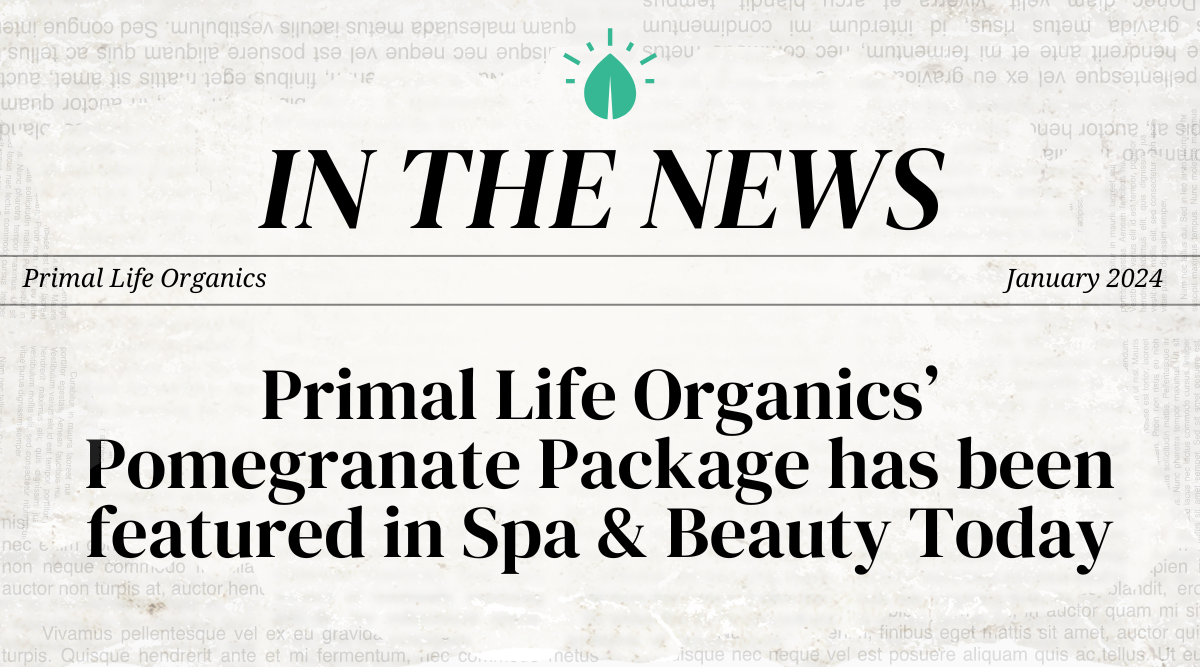
Primal Life Organics' Pomegranate Package has earned the spotlight, featured in Spa & Beauty Today in an article titled, "Spa & Beauty Today’s Winter 2024 Editors’ Picks." Celebrated as a ...
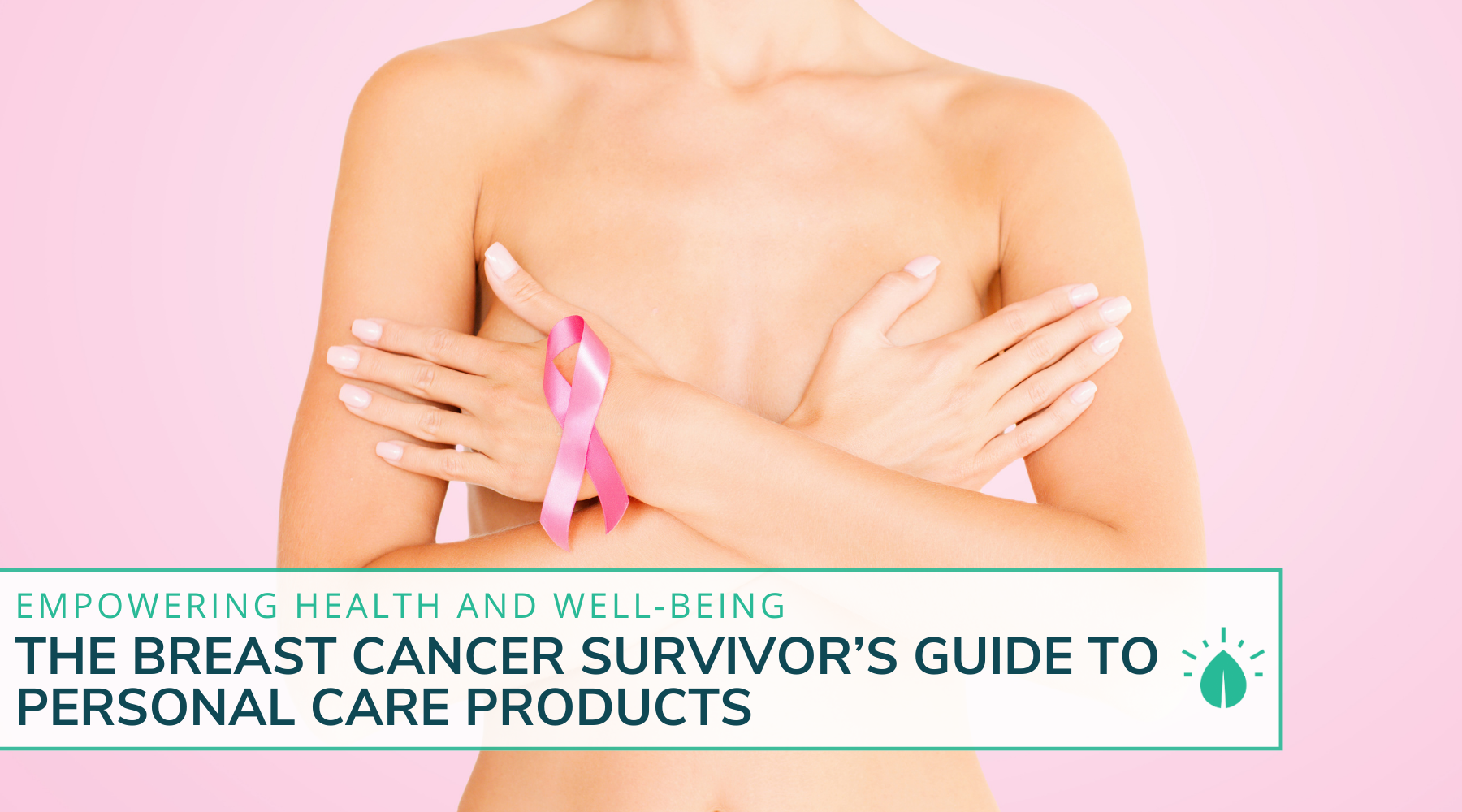
One in eight women will be diagnosed with invasive breast cancer over the course of their lifetime. Worldwide, female breast cancer has now surpassed lung cancer as the most commonly diagnosed ca...
